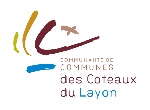Coteaux du Layon: promoting vineyards and regional cultural assets

The Organisation
The Community of Local Authorities of the Coteaux du Layon was created in 1994 as an association of 12 village administrations, representing a total of 14 131 inhabitants. It aims to organise projects of local interest and to offer new public services in the territory. In 2003 a dedicated tourism department was created.
The Challenge
The Coteaux du Layon region has a richness of beautiful landscapes, and it possesses significant cultural and historical heritage, as well as reputed vineyards. The Community wanted to introduce new, innovative methods to promote these assets, while supporting the local wine economy. It was anticipated that digital tourist guides would reduce the field work in surveying and replacing tourist information signboards, as well as allow for a complete removal of the signboards in some areas, especially in areas of outstanding natural beauty.
The Satellite Solution
Tourists can borrow GPS devices allowing them to follow the two itineraries developed so far – the hiking and the traditional village circuits – and to learn about the history, architecture, biodiversity and wine-making in points of interests referenced on the GPS maps. The devices can be borrowed for free at four lending spots, in exchange of a small deposit. The itineraries can also be downloaded on smart phones.
Content production took several months and it involved pooling together information from a variety of public and private stakeholders.
The Results
Early results show that after an initial reticence to the technology, tourists readily adopted the tools and appreciated them as being easy to use. There is a growing interest in the system from a number of tourist operators, which now promote it on their websites. In view of this success, the project is to be further extended with three more circuits in the short term. In addition, it recently became possible for the Local Authorities from the Community to create their own tourist circuits, with technical support from the Tourism Department of the Community, which is likely to lead to a further extension of the service.
“In addition to the obvious benefits to tourism and the local economy, the direct involvement of the Local Authorities in taking the project from an idea to reality created a strong sense of cohesion.” Florence Petit, Tourism development officer

